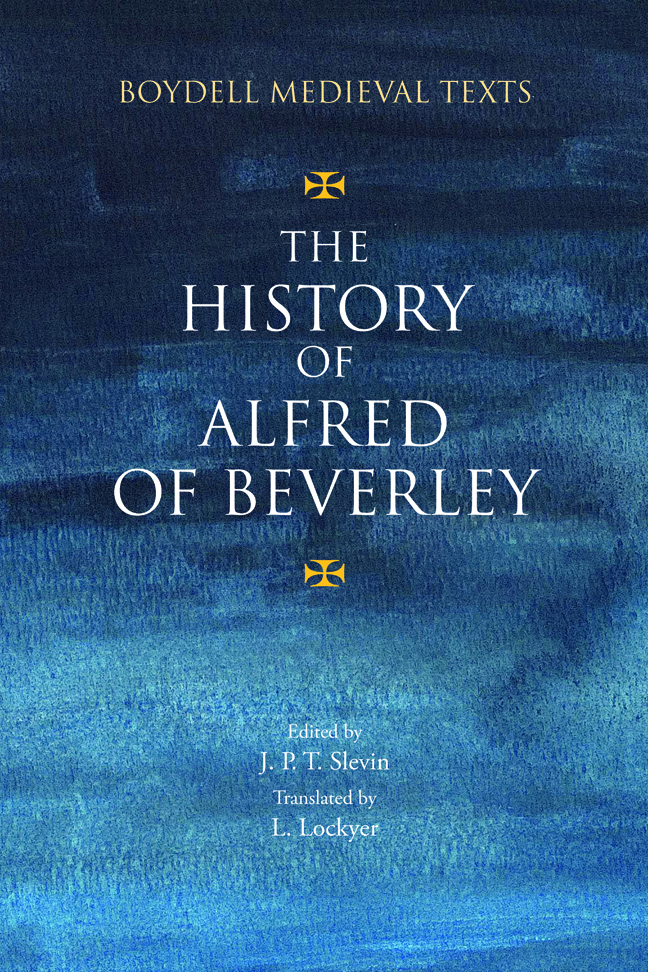Introduction
Published online by Cambridge University Press: 17 February 2024
Summary
Alfred of Beverley – Man, Milieu & Memory
What little is known of Alfred the man derives from three principal sources: the surviving charters in which he appears as a witness, internal evidence from the History he wrote and his commemoration in later historical and hagiographical literature.
Charters
Five charters survive in which Alfred of Beverley is named as a witness. These confirm that he was active during the period c.1135–54 and give information about the religious communities with which he had contact and the circle in which he moved. In the East Riding of Yorkshire such contact included the Augustinian priories of Bridlington, founded before 1114; Warter, founded in 1132, and the Gilbertine priory of Watton, a double house of canons and nuns founded in c.1150 x 1153 by Eustace fitz John and his wife Agnes.
Alfred's attestation of William Tyson's confirmation of a gift of land in Averham, in the East Riding, to the Cistercian Rufford Abbey (Nottinghamshire), founded in 1146, is of particular interest. Preserved in the fifteenth-century Rufford cartulary, the attestation not only shows Alfred's association with a Cistercian abbey located over sixty miles from Beverley, but also names Ernaldo filio Alueredi as a witness (Figure 1, charter no. 5). The name Ernaldus is not listed immediately after Alueredo Sacrista – he is the twelfth named and Alfred is third – but there are reasonable grounds to consider that Ernaldus was the son of Alfred the sacrist. We learn from this charter therefore that Alfred was a family man, either married, or (in common with many secular clerks of the period) living in concubinage. In all these charters Alfred is named as sacrist – in later medieval sources he is described as thesaurarius, treasurer – attesting evolution in the organisation of the church of Beverley and in the role of its dignitaries over the period. In charter no. 2, in favour of the burgesses of Beverley, given by Archbishop William fitz Herbert (c.1143), Alfred is described as Magister – although the school at which he earned his title remains unknown.
Alfred's co-witnesses in the five charters number over eighty and are a source of valuable information. Fifteen are senior clergy, including dignitaries and officers of the chapters of York and Beverley and abbots and priors of East Riding religious houses. Other witnesses represent a cross section of the landowning aristocracy of the East Riding of Yorkshire.
- Type
- Chapter
- Information
- The History of Alfred of Beverley , pp. xix - lxxviiiPublisher: Boydell & BrewerPrint publication year: 2023

